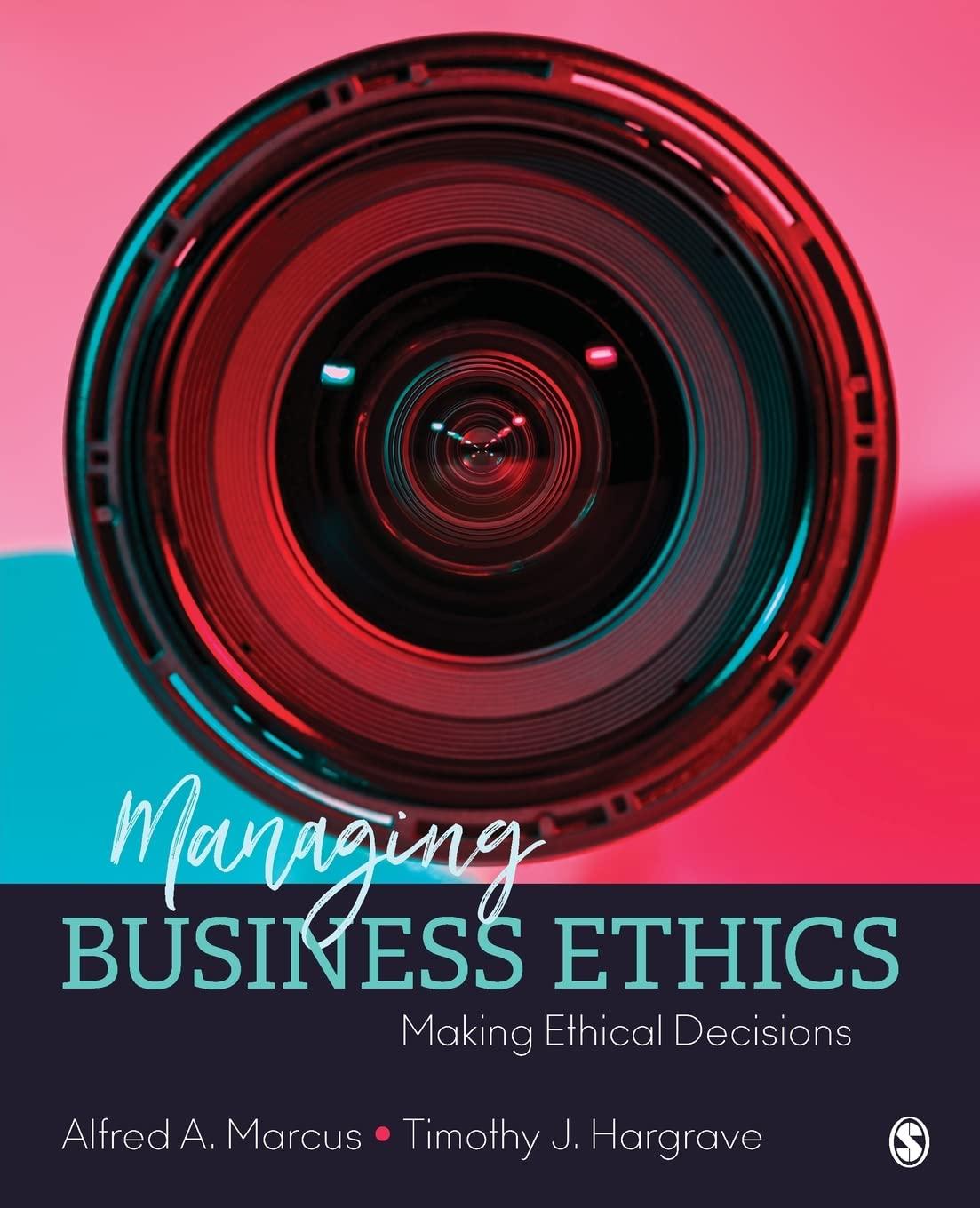With a focus on innovation, Pegasus is a company committed to technology leadership in the new millennium.
Question:
With a focus on innovation, Pegasus is a company committed to “technology leadership in the new millennium.” Its systems and products are selling well in markets throughout the world. The CEO wants the company to succeed, to maximize shareholder value, and to keep her job; and she wants to be a model of ethical leadership. She has made an effort to build a corporate culture characterized not only by aggressive R&D (research and development) and growth but also by integrity, honesty, teamwork, and respect for the individual. The company enjoys an excellent reputation among its customers and suppliers, employee morale is high, and ethics is a very high priority. Pegasus is eager to grow its global business. At a strategy session, the CEO and the division managers explore the potential for further expansion globally. It is noted that China is likely to continue to develop a huge market for the firm’s products but a significant “payoff” is usually required to get this business. The CEO says, “A lot of companies do business with China. How do they get around the problem?” A division manager says, “Most companies contract with agents. What the agents do is their own business. The CEOs sign disclosure statements that no bribery has taken place.” The CEO says, “Isn’t that paying someone else to do something unethical? I’m not comfortable with it. What if we held back in our efforts to expand in China?” Another division manager responds, “The country represents millions of dollars of potential sales. When you consider what we have to gain, what do we have to lose if our local contractors make payoffs every now and then?” The CEO next turns to her division managers and asks, “Can you tell me what you found during your recent visits to our foreign affiliates?” She hears three reports:
1. One manager says, “In Lima, Peru, we reviewed financial records and discovered that the commission expenses for the branch were unusually high. We pay our salespeople commissions for the sales they make. Some companies pay unusually high sales commissions to disguise the fact that the sales personnel pay kickbacks for contracts. When we confronted the Lima district manager and questioned him about the high commissions, he responded, ‘We’ve got a job to do. If the company wants results, we’ve got to get things moving any way we can.’”
2. Another manager says, “In Stockholm, Sweden, we noted a number of college-age student employees who seemed to have little work to do. We questioned the district manager, who responded, ‘Sure, Magnus is the son of a telecommunications regulator. Caryl is the daughter of a judge who handles regulatory appeals in utilities. Andre is a nephew of the head of the governing party. They’re bright kids, and the contacts don’t hurt us. In Scandinavia, this is a part of doing business.’”
3. A third manager says, “In Mumbai, India, we noted that many payments had been made to the government and government officials. When we voiced this concern, the district manager responded, ‘I can explain every payment. On this one, we needed the utilities [water and electricity] for our offices turned on. We could have waited our turn and had no services for 90 days, or we could pay to get moved to the top of the list and have our utilities turned on within 48 hours. On the check for licensing, again, we could have waited six months to get licensed or pay to expedite it and be licensed.’”
The CEO then turns to the company’s compliance officer: “Are these practices legal?” He responds, “The United States and European Union permit ‘facilitation’ or ‘grease’ payments, but they prohibit outright bribes. Facilitation opens doors or expedites processes; the aim is not to influence outcomes. For violating these laws, IBM and Siemens were recently held accountable in big scandals that made the headlines in the Financial Times.” The CEO then turns to you and asks, “What should we do?” How do you respond?
Step by Step Answer:

Managing Business Ethics Making Ethical Decisions
ISBN: 9781506388595
1st Edition
Authors: Alfred A. Marcus, Timothy J. Hargrave





